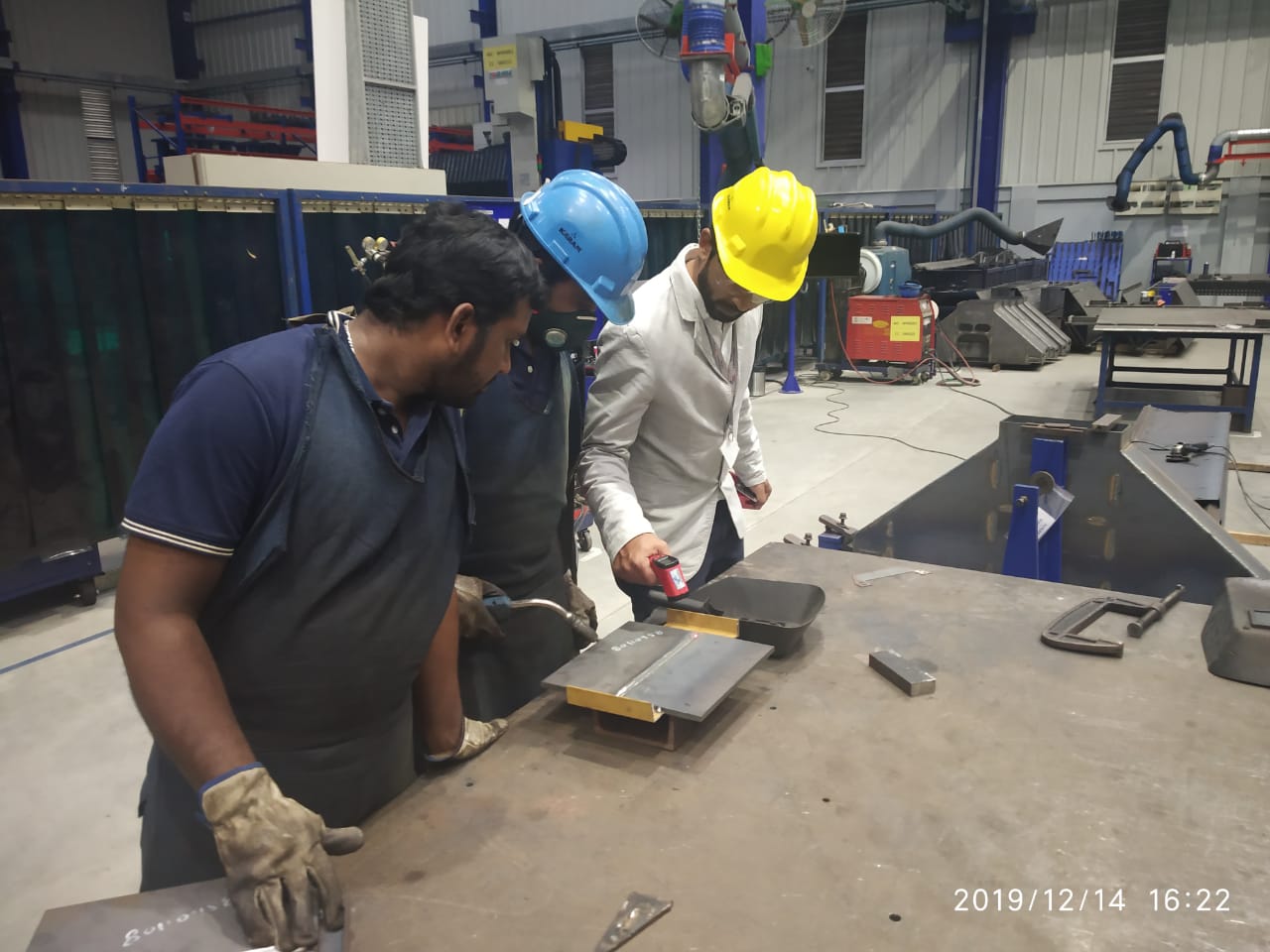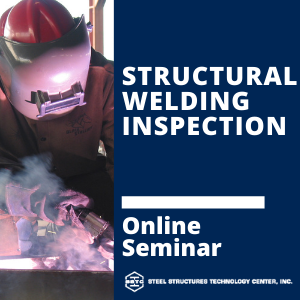Top Tips for Effective Welding Inspection in Gilbert Arizona: A Comprehensive Guide
Top Tips for Effective Welding Inspection in Gilbert Arizona: A Comprehensive Guide
Blog Article
The Effect of Extensive Welding Assessment on Market Standards: Promoting Safety And Security, Integrity, and Conformity Throughout Various Markets
The duty of extensive welding examination is increasingly identified as a vital part in boosting market criteria, where integrity, compliance, and safety and security take precedence across varied fields. What changes might we prepare for in welding approaches as the need for high quality and safety intensifies?
Significance of Welding Evaluations
Recognizing the critical function of welding inspections in keeping high quality and safety and security standards, market professionals prioritize these evaluations to guarantee architectural stability. Welding examinations work as a crucial checkpoint in the construction process, determining flaws that can endanger the sturdiness and security of welded frameworks. By systematically examining welds, inspectors can identify problems such as insufficient penetration, porosity, and fractures, which may not show up to the naked eye.
The value of these evaluations prolongs past mere conformity; they are essential for protecting lives and safeguarding investments. In important markets such as building, aerospace, and production, a solitary faulty weld can bring about devastating failings, leading to both economic loss and human casualties. Applying strenuous inspection methods alleviates these threats and boosts general task dependability.
Moreover, constant welding assessments cultivate a culture of quality throughout organizations, motivating welders to comply with finest methods and keep high requirements in their work. This dedication to quality not only boosts functional effectiveness but likewise enhances the track record of companies within their corresponding sectors. Thus, welding inspections are crucial in advertising safety and security, integrity, and compliance throughout various markets.
Trick Sector Requirements and Rules
The framework of welding inspections is underpinned by a durable collection of market criteria and laws that regulate practices throughout numerous markets. Key establishments, such as the American Welding Society (AWS) and the International Organization for Standardization (ISO), establish guidelines that make certain high quality and safety in welding operations. For example, AWS D1.1 outlines important needs for welding steel frameworks, while ISO 3834 specifies high quality needs for fusion welding.
In addition to these particular criteria, industry regulations like the American National Requirement Institute (ANSI) and Occupational Safety and Health And Wellness Management (OSHA) requireds even more improve compliance by establishing security protocols and functional best practices. These policies are critical in industries such as manufacturing, building, and aerospace, where welding stability is vital.
Furthermore, sector-specific criteria, such as those from the American Culture of Mechanical Engineers (ASME) for pressure vessels, give extra layers of examination to make certain that welds meet rigorous security and performance requirements. Adherence to these criteria not just assists in regulative compliance but likewise promotes a society of top quality and dependability throughout the welding sector, ultimately protecting public well-being and enhancing functional performance.

Advantages of Conformity and Dependability
Regularly sticking to industry standards and guidelines in welding examinations yields considerable advantages, enhancing overall integrity and efficiency. The primary advantage is the guarantee of quality in welded joints, which directly adds to the security of frameworks and equipment. Compliance with established requirements reduces the danger of failing and tragic incidents, therefore safeguarding both human life and useful possessions.
In addition, organizations that prioritize rigorous welding evaluations foster a society of accountability and expertise. This dedication not only strengthens the track record of the company yet also instills self-confidence in stakeholders and customers regarding the stability of product or services. Dependable welding procedures cause decreased costs connected with rework, fixings, and possible legal responsibilities stemming from below average handiwork.
Furthermore, keeping conformity with visit this page sector requirements promotes smoother regulatory interactions, as organizations can easily show adherence to necessary protocols (Welding Inspection Gilbert Arizona). This proactive approach can cause useful collaborations and possibilities within the sector, in addition to accessibility to new markets
Challenges in Welding Evaluation
Navigating the complexities of welding evaluation presents a myriad of difficulties that can prevent conformity with market standards. One significant obstacle is the variability in inspection techniques and modern technologies. Various sectors may use varied methods, causing incongruities in the examination of weld high quality. In addition, the absence of standard training for examiners can lead to varied analyses of assessment requirements, which may endanger safety and reliability.
One more obstacle hinges on the access of sophisticated examination devices - Welding Inspection Gilbert Arizona. While technologies such as ultrasonic testing and radiography can enhance discovery capabilities, their application might be restricted by expense or schedule, especially in smaller operations. This variation can lead to a dependence on much less reliable evaluation techniques, boosting the threat of undiscovered flaws
In addition, the hectic nature of modern-day manufacturing frequently stress assessors to focus on rate over thoroughness, potentially overlooking vital problems. Finally, regulative conformity can be intimidating because of the progressing nature of industry standards, leaving companies having a hard time to stay on top of the most current requirements. These difficulties demand continuous renovation in examination practices to ensure the stability of bonded structures throughout different sectors.
Future Trends in Welding Practices
Arising innovations and developing methods are established to change welding methods in the coming years. Developments in automation, such as robot welding systems, are gaining grip, boosting accuracy and efficiency while reducing human error. These systems will certainly not just accelerate production however likewise help with consistent quality assurance, dealing with some of the obstacles dealt with in hands-on welding.
Furthermore, the assimilation of fabricated knowledge (AI) and equipment understanding right into welding processes is positioned to reinvent inspection and tracking. Real-time data analytics will enable predictive upkeep, permitting aggressive treatments that minimize downtime and increase safety and security. Boosted reality (AR) and online reality (VIRTUAL REALITY) technologies are coming to be instrumental Continued in training welders, providing immersive experiences that boost skill advancement without the threats associated with traditional techniques.
Sustainability is additionally an essential pattern, as markets look for greener methods. The adoption of eco-friendly materials and methods, along with energy-efficient machinery, will likely end up being conventional. As sectors adjust to these changes, the focus will change towards better compliance with safety and security and ecological laws, guaranteeing that welding methods not just meet current criteria but additionally lead the way for a more secure and more lasting future.

Final Thought
Finally, strenuous welding inspections considerably improve industry criteria by making certain safety, reliability, and conformity across numerous fields. By methodically recognizing flaws and adhering to developed guidelines, these assessments mitigate dangers associated with architectural failures. The promotion of liability amongst welders causes higher top quality outcomes, promoting depend on within neighborhoods. As markets proceed to prioritize operational integrity, the importance of extensive evaluations will only enhance, ultimately profiting companies and society at huge.
The role of rigorous welding assessment is significantly acknowledged as an important component in boosting industry criteria, where integrity, compliance, and security take precedence throughout varied markets. Hence, welding evaluations are important in advertising safety, dependability, and conformity throughout numerous industries.
Trick institutions, such as the American Welding Society (AWS) and the International Organization for Standardization (ISO), establish guidelines that make certain top quality and security in welding operations. AWS D1.1 details vital needs for welding steel structures, while ISO 3834 defines quality requirements for combination welding.
In verdict, strenuous welding evaluations substantially boost industry criteria this page by making sure safety and security, integrity, and compliance across various markets.
Report this page